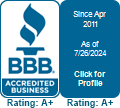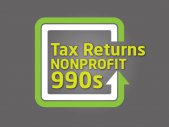Bookkeeping for 501c3 Organizations
Even though your 501c3 nonprofit organization is income tax-exempt with the IRS, you must file a yearly tax return. The easiest way to make sure you tax return is accurate each year, is to have an efficient bookkeeping system. Here are some basic tips for efficient bookkeeping throughout the year.
Know your fiscal year end. Most organizations choose December 31st, since it is also the calendar year end. But if your organization decided upon a different month as your year end, it is crucial to recall when that is. This will help when recording your data, as well as let you know when your year tax return with the IRS is due.
Keep track of your revenue and expenses. The revenues for 501c3 nonprofit organizations are different from most other types of businesses. These sources can include donations, program fees, sales income, membership dues, investment income, and proceeds from fundraising events. Whenever your organization receives revenue from any of the sources listed, you must keep detailed information about the revenue. For example, if a donor gives your organization a check, you will need to have the donor’s name and how much they donated. The expenses for your 501c3 nonprofit organization are also a bit different from for-profit businesses. These can include, but are not limited to, contributions to other charitable organizations, reimbursements, organization’s facility fees (utilities, rent), organization’s program expenses, and board of director’s compensation. Much like the revenue, these should be listed with details like what the expense is for, who it’s being paid to, etc. Keeping a good detailed list of your 501c3 organization’s revenue and expenses will be helpful for you in the future.











